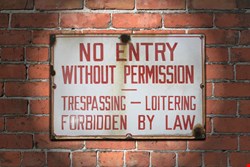
If a user attempts to visit The Pirate Bay via BT in the UK he gets a simple three-word message: "Error - site blocked." This, says the UK's Open Rights Group (ORG), isn't good enough: users should be told why and by what authority a site is inaccessible.
In the UK, and some other European countries, access to The Pirate Bay must be blocked by the major ISPs because of a court order obtained by the entertainment industry over copyright infringement. But although internet users cannot directly access the site, they are not usually told why. (Virgin Media is one exception.)
A good ISP error message, says ORG, "would tell their customers how to challenge a block, how long the block's expected to last, where the relevant legal documents are and which legal authority imposed the blocking order."
ORG has taken up a proposal first submitted to the IETF by Google engineer Tim Bray in January 2013 titled "A New HTTP Status Code to Report Legal Obstacles." The proposal is for a new error code: 451 Unavailable for Legal Reasons.ORG has launched a campaign for its adoption at www.451unavailable.org.
The 400 range of HTTP status codes indicate a client error. The most commonly found in use are 401 (unauthorized), 403 (forbidden), and 404 (not found) – but there are many others. 450, for example, is a Microsoft status code: Blocked by Windows Parental Controls. 451 is thus an obvious choice – but clearly also references Ray Bradbury's dystopian government censorship novel, Fahrenheit 451.
Censorship is ORG's priority. It has already launched a campaign aimed at preventing the UK from 'sleepwalking into censorship.' It fears that the UK's opt-out ISP porn filters could drift into much wider censorship, and that greater transparency on legal blocks could help prevent this.
"Error 451 pages," it writes, "would include all the key information about the blocking order including links to the relevant court order, how to challenge the block and the law allowing the court to block websites in that country."
Commenting on the 451 campaign, Motherboard notes, "the British Library's wi-fi filter recently blocked users from accessing Hamlet due to its 'violent' content. And the Shakespeare-blocking library is just the tip of the iceberg when it comes to inadvertent censorship. Over the years there's been a steady stream of reports of innocent websites getting swept up in overzealous copyright crackdowns, and free expression activists fear the same will happen under British Prime Minister David Cameron's controversial 'pornwall.'"
According to Digital Trends,Tim Bray has not been involved in ORG's adoption of 451, but is happy about it. "In a message on Twitter," it writes, "Bray tells us that he was not involved with building ORG’s website campaign, but is 'smiling' at the effort. 'I drafted the IETF proposal,' he writes. 'Hadn’t seen the site, but smiling.'”